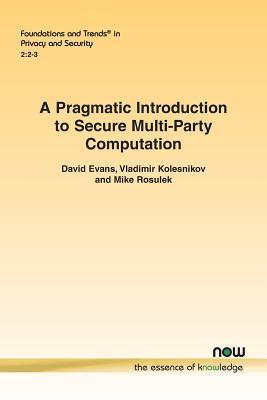Since its introduction by Andrew Yao in the 1980s, multi-party computation has developed from a theoretical curiosity to an important tool for building large-scale privacy-preserving applications. Secure multi-party computation (MPC) enables a group to jointly perform a computation without disclosing any participant's private inputs. The participants agree on a function to compute, and then can use an MPC protocol to jointly compute the output of that function on their secret inputs without revealing them.
This monograph provides an introduction to multi-party computation for practitioners interested in building privacy-preserving applications and researchers who want to work in the area. The authors introduce the foundations of MPC and describe the current state of the art. The goal is to enable readers to understand what is possible today, and what may be possible in the future. It provides a starting point for building applications using MPC and for developing MPC protocols, implementations, tools, and applications.
Those seeking a concise, accessible introduction to the topic which quickly enables them to build practical systems or conduct further research will find this essential reading.
